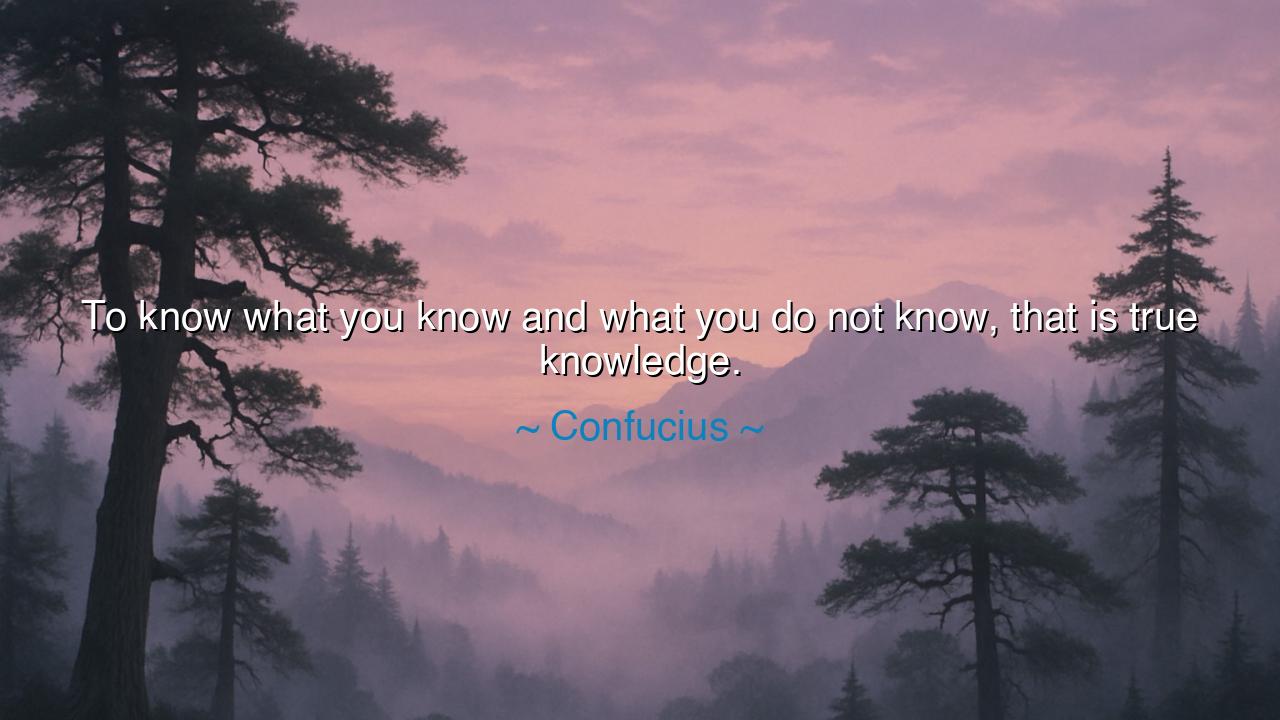
To know what you know and what you do not know, that is true






Hear the timeless wisdom of Confucius, master of virtue and harmony, who declared: “To know what you know and what you do not know, that is true knowledge.” In this saying, he speaks not of the accumulation of facts, but of the deeper discipline of humility and self-awareness. For many proclaim themselves wise, yet are blind to the limits of their own understanding. True wisdom lies not in claiming to know all things, but in discerning the boundary between knowledge and ignorance, and in walking that boundary with honesty.
The meaning of knowing what you know is clarity, the recognition of truths that you have tested and made firm. Such knowledge gives strength, because it is rooted in reality. But greater still is the meaning of knowing what you do not know—for this requires humility. To confess ignorance is not weakness, but strength, for only then can the mind remain open, ready to learn, ready to grow. He who pretends to know all closes the door to wisdom; he who admits ignorance holds the key to learning.
Consider the story of Socrates, the philosopher of Athens, who echoed this same truth centuries after Confucius. When told that he was the wisest of men, Socrates replied that his wisdom lay only in knowing that he knew nothing. This humility disarmed arrogance and opened the path to inquiry. By questioning, by admitting limits, he uncovered deeper truths. Here, East and West converge: both Confucius and Socrates remind us that the first step to wisdom is the recognition of what is not yet known.
History also offers us warnings of the opposite. Think of rulers who claimed absolute understanding, who silenced counsel and refused correction. Their arrogance led nations into ruin. Qin Shi Huang, the first emperor of a united China, sought to suppress scholars and burn books, believing his own judgment supreme. Though powerful, his ignorance of his own limits sowed resentment and turmoil, and his dynasty soon collapsed. His story stands as a testament to Confucius’s wisdom: blindness to one’s ignorance leads to destruction.
The beauty of Confucius’s teaching is that it applies not only to kings and philosophers, but to every soul. In daily life, how often do people pretend to know what they do not, for fear of appearing weak? How often do they reject guidance, thinking themselves wise? Yet the humble student, who admits what he does not know, grows daily, while the arrogant man, trapped in false certainty, remains forever small. Thus, the recognition of ignorance is not a defeat, but a beginning.
The lesson, then, is clear: embrace humility in knowledge. Be honest with yourself about what you understand and what lies beyond your grasp. Rejoice in what you know, but do not cling to it as though it were the whole. Rejoice also in what you do not know, for it is the doorway to new learning. This balance is the heart of wisdom: confidence without arrogance, humility without despair.
Therefore, beloved seekers, let your practice be this: speak only of what you know with honesty, and when you do not know, confess it freely. Seek teachers, books, and experiences to fill the gaps, and never close the door to learning. Measure your knowledge not by pride, but by truth. And remember always the eternal wisdom of Confucius: true knowledge is not to know everything, but to know what you know, and to know what you do not. In this balance lies the path to wisdom, peace, and greatness of spirit.






AAdministratorAdministrator
Welcome, honored guests. Please leave a comment, we will respond soon